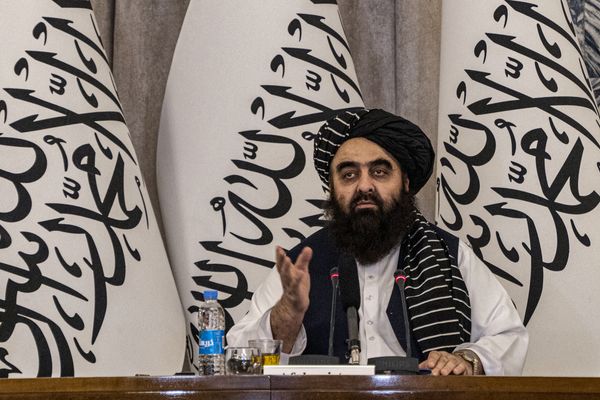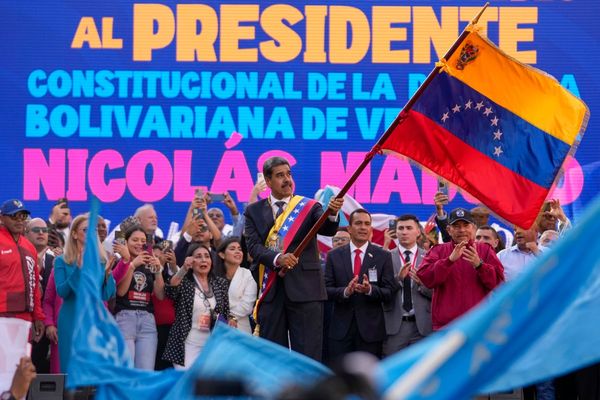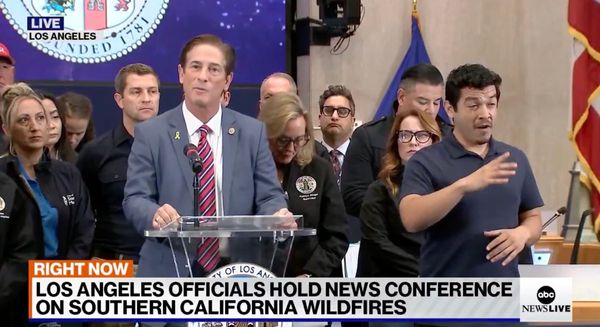Sri Lanka’s economic crisis has deteriorated into a medical crisis, with the top medical union declaring a national health emergency over a life-threatening shortage of drugs.
On Tuesday the country’s most powerful trade union, the Government Medical Officers’ Association (GMOA), called a meeting and declared a medical crisis as doctors and hospitals reported a widespread lack of medicine.
The south Asian country is in the grip of the worst financial crisis in its history, with record inflation leading to shortages of fuel and food, and crippling hours-long power blackouts imposed. A state of emergency has been declared after mass protests erupted across the country calling for President Gotabaya Rajapaksa to step down. On Monday Rajapaska’s entire cabinet resigned, and his ruling government has lost its parliamentary majority after a mass wave of defections.
Sri Lanka’s lack of foreign currency reserves has had a devastating impact on the availability of medicine. More than 85% of pharmaceutical products in the country are imported, and these are paid for in US dollars. If dollars are not available then drugs cannot be bought. The Sri Lanka Chamber of Pharmaceutical Industry warned last month that 5% of drugs were out of stock and the problem was likely to worsen.
The GMOA accused the government of jeopardising Sri Lanka’s renowned universal healthcare system, which gives all citizens access to free state healthcare. “Both the government and health ministry have failed to prevent a complete breakdown of the medical system,” it said.
Gotabhaya Ranasinghe, a cardiologist at the national hospital of Sri Lanka in Colombo, said hospitals were running out of medicines, and many lives were at stake.
“There are important heart medications, medicines for blood pressure, heart attacks, all are running out. I have heard that many cancer drugs are also not available any more, so it is a very worrying situation,” he said.
“People can already visibly see the impact of the food crisis and the fuel crisis but the medical crisis is only just beginning. As a doctor it feels terrible to know that I can’t prescribe medicines and so a patient’s life is put in danger. I don’t think the politicians fully understand the impact.”
Ranasinghe said he could not see any silver lining to the economic situation, and he pleaded for the international community to provide vital drugs. “People are struggling, they are out on the streets, but we are stuck in a terrible limbo and I can’t see a way out of it,” he said.
The medicine shortage has been exacerbated by low taxes, meaning little money has been spent on healthcare, and strict price regulation on drugs introduced by the former government and continued under the Rajapaksa regime.
The low price caps have meant that as the Sri Lankan rupee has been devalued and domestic and global inflation has rocketed, it has no longer been financially viable for importers to bring certain medicines into the country, leading to certain drugs being pulled.
“The situation for healthcare has been getting steadily worse over the past six months, with no immediate prospect of a turnaround,” said Ravindra Rannan-Eliya, the executive director of the Institute for Health Policy in Colombo. “Even for those who have money in their pocket, there are no medicines to buy at the pharmacies.”
On Tuesday the political situation was thrown into further turmoil when the ruling coalition, led by Rajapaksa, lost its parliamentary majority after 41 legislators from the president’s coalition partner, the Sri Lanka Freedom party (SLFP), declared they would be independent. “Our party is on the side of the people,” said Maithripala Sirisena, the SLFP leader.
It came a day after the entire cabinet resigned and the opposition refused to form a unity government with Rajapaksa, instead calling for him to resign, which he has refused to do. The newly appointed finance minister resigned less than 24 hours after taking up the post, and protests across the country showed no sign of abating as police used teargas and water cannon and a curfew was imposed.
“We can see from what’s happening on the streets and in our public surveys that people have just lost all faith in the system,” said Rannan-Eliya.







